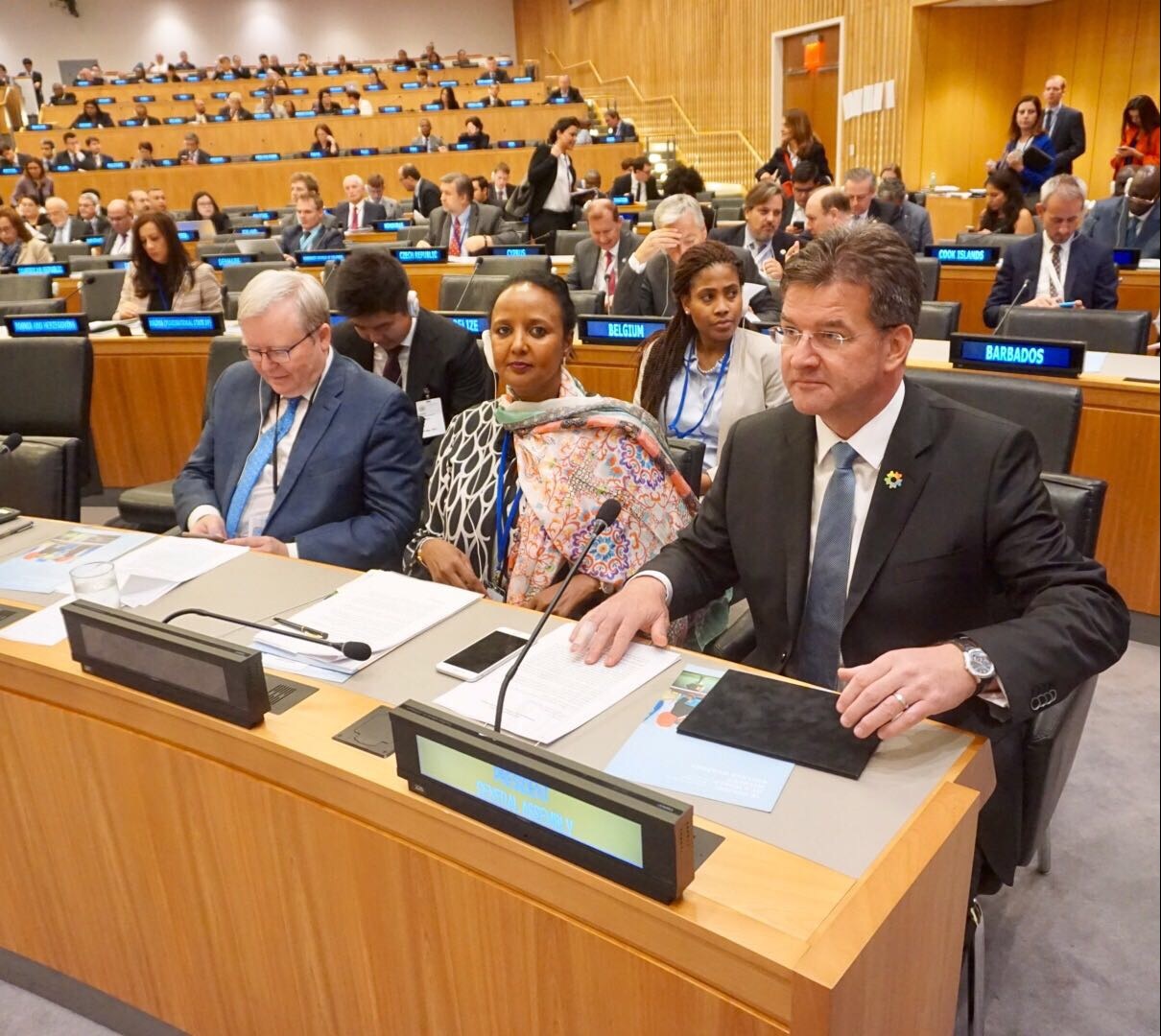Tenth Conference on Facilitating Entry into Force of Comprehensive Nuclear-Test-Ban Treaty

– As delivered –
Statement by H.E. Mr. Miroslav Lajčák, President of the 72nd Session of the UN General Assembly, at the Tenth Conference on Facilitating the Entry into Force of the Comprehensive Nuclear-Test-Ban Treaty
Thank you Mr. President.
Mr. Secretary-General, Distinguished Ministers, Delegates, Ladies and Gentlemen,
I want to echo the thanks expressed by others to His Excellency, Mr. Lassima Zerbo, for his ongoing leadership. I also want to thank my esteemed colleagues from Japan and Kazakhstan for the work they did over the last two years. Finally, Minister Reynders and Minister al-Jaafari – good luck in your new roles. You have taken on a difficult – but noble – task.
The Comprehensive Nuclear-Test-Ban Treaty has a very clear goal. In fact, it’s in the title! The Treaty’s mechanisms already ensure that no nuclear explosion goes undetected. When the CTBT enters into force, a complete halt to all nuclear testing will be in even clearer sight.
Today’s conference allows us to ask – and answer – a few questions.
First, do we still need the CTBT?
The answer is clear. Yes. Because nuclear tests are still being conducted. The de-facto norm prohibiting them is not being respected. We should be accelerating our efforts – not slowing down. “No” to testing also means “no” to the development of new weapons.
Make no mistake: we need this Treaty.
Make no mistake: we need this Treaty.
My second question: how close are we?
The treaty is 10 signatures shy of being signed by all UN Member States. It has also been ratified by an overwhelming majority. But we must remember that we still need ratification by eight remaining states before the Treaty can come into force. So, we are close, but not close enough.
And third, what lies ahead?
As long as we can point to progress at these conferences, we’re still on the right track. On that note, I want to welcome Myanmar and Swaziland as the latest countries to ratify the treaty. This shows the strength of the Preparatory Commission’s outreach efforts.
As you know, the Treaty to Prohibit Nuclear Weapons was opened for signature earlier today. Some parties support this initiative – others oppose it. It doesn’t matter which camp we are in. The relevance and urgency of the CTBT remains.
If we want to eliminate the risk of nuclear attacks, we need to stop nuclear testing. If we want to stop nuclear testing, we need a legally binding instrument. And if we want an instrument, we need political will to achieve it.
So, when we leave the room today, let us start working on progress to show at next year’s Conference.
I thank you.